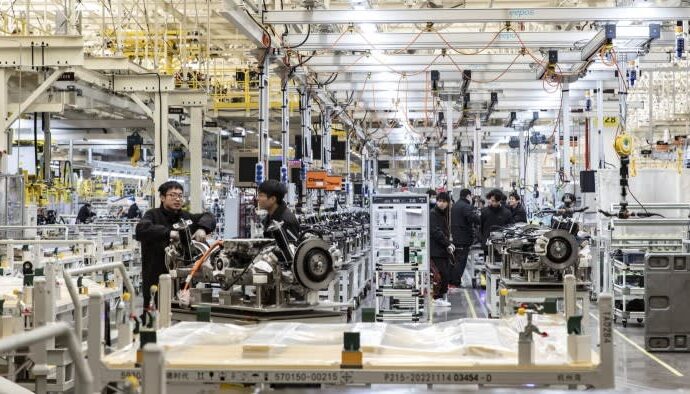Unlock the Editor’s Digest for free
Roula Khalaf, Editor of the FT, selects her favourite stories in this weekly newsletter.
Indian Prime Minister Narendra Modi insisted he would not compromise on the interests of its farmers despite Donald Trump’s imposition of a 50 per cent tariff, escalating a stand-off over trade and the country’s purchases of Russian oil.
US President Trump hit India with a punitive 25 per cent tariff in an executive order on Wednesday, pointing to the country’s purchases of crude from Moscow.
India already faced a 25 per cent US levy on its exports after failing to reach a trade deal with Washington before the US president’s August 1 deadline.
Speaking on Thursday at an agricultural sector conference in New Delhi, Modi did not directly address US tariffs but said he “will never compromise on the interests of farmers, livestock owners and fishermen”.
“I know, personally, I’ll have to pay a heavy price — but I am ready for it,” he added. He did not comment on India’s purchases of Russian oil, which have risen sharply since 2022.
India has now joined Brazil at the top of the list of countries facing the highest levies from Trump.
Brazil’s president, Luiz Inácio Lula da Silva, told Reuters that he would call Modi on Thursday to discuss how leaders of the Brics grouping — also including China, Russia and South Africa — can have a joint response to US tariffs.
Reaction in India’s financial markets was muted. The benchmark Nifty 50 stock market index edged down 0.6 per cent on Thursday while the rupee traded flat against the dollar at Rs87.68.
Some export stocks in industries such as textiles were hit harder and Mukesh Ambani’s Reliance Industries, which has processed large quantities of India’s Russian crude imports, was down 1 per cent.
“An additional 25% tariff will likely inflict more visible economic damage on India but, as we have noted previously, the relatively domestic orientation of the Indian economy should limit the pain,” Barclays said in a note on Thursday.
According to people briefed on the trade talks in New Delhi and Washington, India’s insistence on protecting its foodgrain and dairy sectors proved a sticking point in trade negotiations.
India did not want to open the politically sensitive markets, on which hundreds of millions of people rely for their livelihoods, to US competition.
Mass farmers’ protests in northern India in 2020-21 forced Modi to retreat on three bills intended to reform the agricultural sector.
Analysts said the onus was now on New Delhi to decide whether to seek a wider bargain with Washington on trade.
“The new tariffs come into effect only after 21 days; before that there will be another round of trade negotiations,” said Teresa John, lead economist at brokerage Nirmal Bang in Mumbai. “The pressure is mounting on India to agree to a trade deal at the earliest.”
Additional reporting by William Sandlund in Hong Kong


